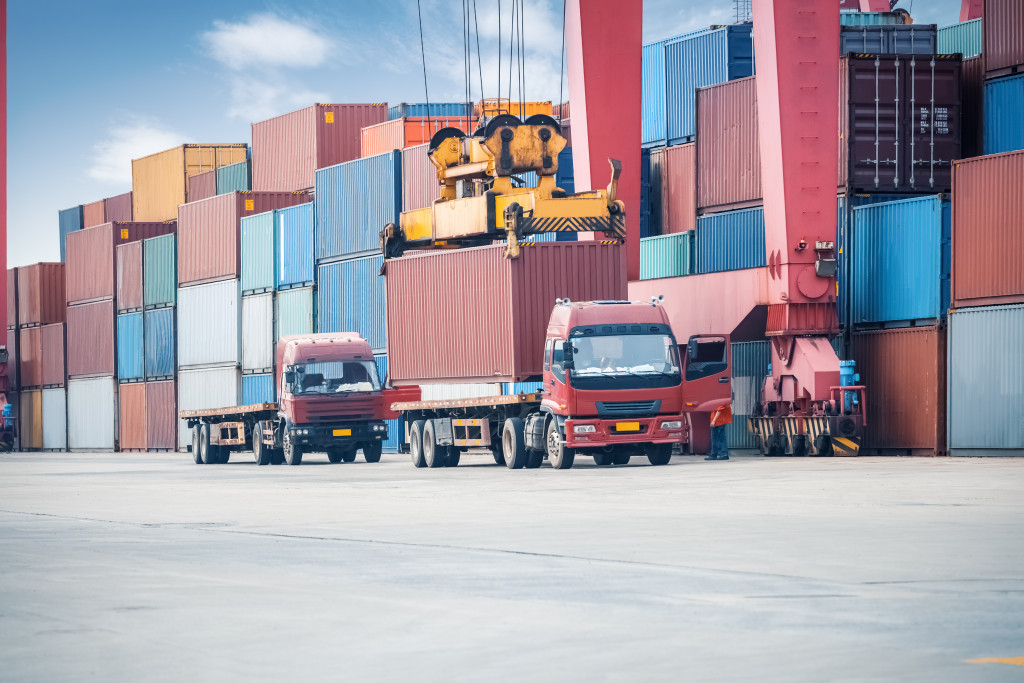The logistics industry in the U.S. is valued at around two trillion dollars and is projected to grow to $3.6 trillion by 2022.
Technological advancements, changing consumer demands, and globalization have all contributed to this growth.
Businesses need to adopt new technologies like automation, AI, and the IoT to remain competitive.
They should also be aware of changing consumer expectations, global regulations, and labor laws.
Finally, businesses need to develop strategies to optimize their operations and gain a competitive edge in the market.
The logistics industry has undergone a tremendous transformation in the past few years, driven by factors such as technological advancements, changing consumer preferences, and globalization. As a result, the industry has become more complex and challenging, but at the same time, it offers unprecedented opportunities for growth and profitability. Here are some of
key trends and challenges facing the logistics industry, as well as the opportunities and strategies for businesses to succeed in this dynamic market.
Logistics Industry Net Worth
The logistics industry in the U.S. is one of the largest in the world. Currently, it’s worth around two trillion dollars, making it the third-largest industry in America. The logistics sector is also predicted to experience significant growth over the next few years, with a projected rise of up to $3.6 trillion by 2022. Here are some reasons for the industry’s growth.

Technological Advancements
The logistics industry has been revolutionized by technology, with innovations such as automation, artificial intelligence, and the internet of things (IoT) transforming the way goods are transported, stored, and delivered. Automation technologies like robots and drones are being used in warehouses and distribution centers to improve efficiency and reduce labor costs. Meanwhile, AI-powered systems are being used to optimize logistics operations, from demand forecasting to supply chain planning. The IoT is also playing a critical role in logistics, with sensors and data analytics tools helping businesses track and manage their shipments in real time.
Changing Consumer Expectations
As e-commerce continues to grow and online shopping becomes the norm, consumers are demanding faster, more convenient, and more personalized delivery options. This has led to the emergence of new logistics models such as same-day and next-day delivery, as well as alternative delivery methods like lockers and drones. Businesses that can offer these services and meet customer expectations stand to gain a competitive advantage in the market.
Globalization
The rise of e-commerce and globalization has made the logistics industry more complex and challenging, with businesses having to navigate multiple borders and regulations. However, it has also opened up new opportunities, with businesses able to tap into new markets and expand their operations globally. The key to success in this market is to have a strong understanding of local regulations, customs, and logistics infrastructure, as well as strong partnerships with local logistics providers.
Environmental Sustainability
Climate change and environmental concerns are increasingly shaping the logistics industry, with customers and policymakers demanding greener solutions. Businesses that can adopt sustainable logistics practices, such as using electric vehicles or optimizing delivery routes to reduce emissions, are not only meeting customer demands but also reducing costs and improving their brand image.
The Role of Big Data
Finally, big data is becoming increasingly important in the logistics industry, as businesses seek to gain insights into their operations and make data-driven decisions. By analyzing data from multiple sources, businesses can optimize their supply chain, reduce waste, and improve efficiency. However, this requires investment in advanced analytics tools and highly skilled data science teams.
Getting Ahead
If you want to get ahead in the logistics industry, it’s important to keep up with the latest trends and developments. Here’s are some tips to help you get ahead in the industry.

Rules and Regulations
Regulations dictate the logistics industry, so businesses need to stay up-to-date with the latest laws and regulations. To do this, they should partner with experienced legal advisors to ensure compliance and avoid potential fines or penalties.
Labor Laws
Additionally, businesses need to be aware of labor laws, and ensure they are creating a safe and fair working environment for their employees. It’s important to hire an experienced truck labor attorney to help you out. This attorney can also help you with other labor-related issues, such as wage and hour law.
Technology Investment
Businesses should invest in the latest technology to stay ahead of the competition. This includes automation tools, AI-powered systems, and IoT solutions that can help streamline operations and improve efficiency. They should also be aware of emerging technologies like blockchain and self-driving vehicles, which could revolutionize the industry in the near future.
Business Strategies
Finally, businesses should develop strategies to optimize their operations and gain a competitive advantage in the market. This includes understanding customer needs and developing personalized services, improving efficiency through data analytics, leveraging global partnerships, and embracing sustainability initiatives. By taking these steps, businesses can stay ahead of the competition in this rapidly evolving industry.
The logistics industry is becoming ever more complex, but it also offers unprecedented opportunities for businesses to succeed. With the right strategies and investments in technology, businesses can capitalize on these opportunities and stay ahead of the competition.

